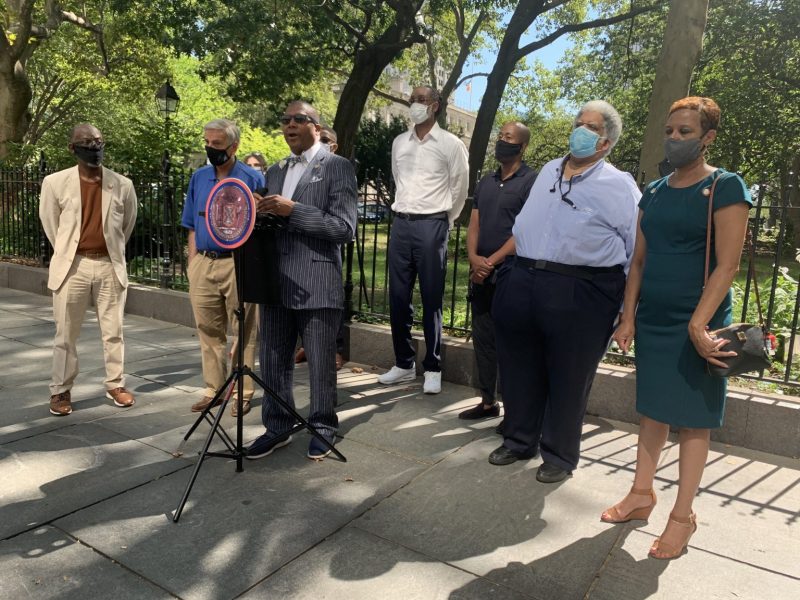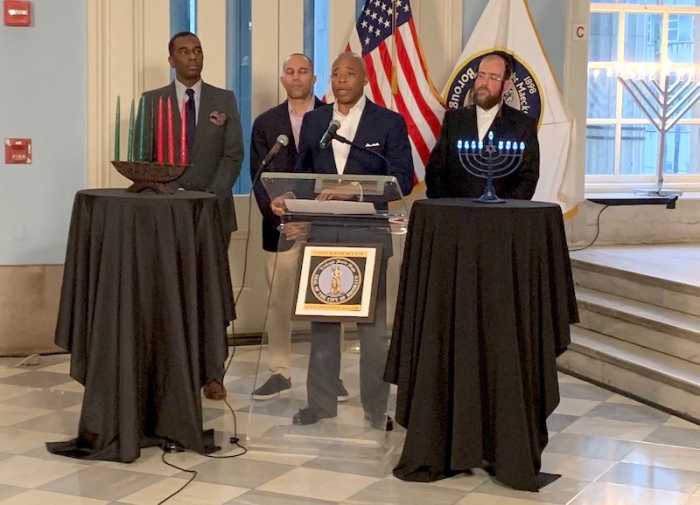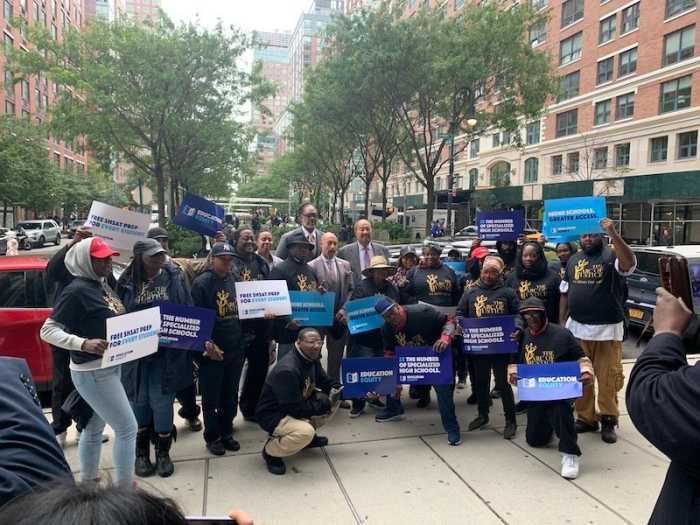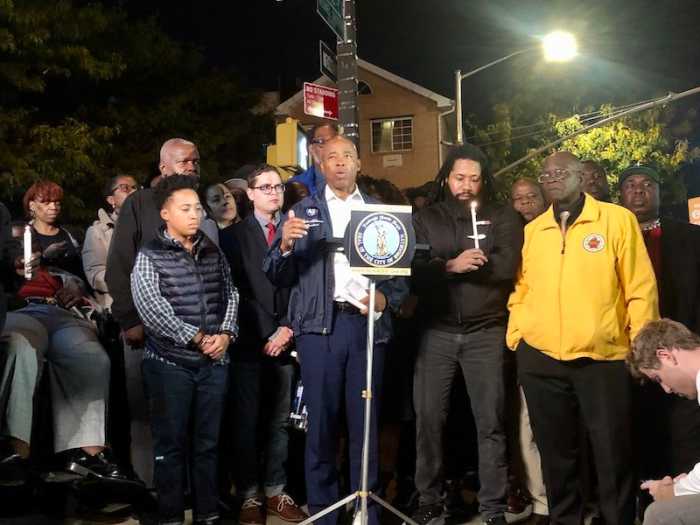The upcoming 2020 Tax Lien Sale would be a devastating disproportionate blow to small Black homeowners –– a community struggling to stay afloat during the COVID-19 pandemic –– and the mayor needs to cancel it, a group of Queens and Brooklyn lawmakers said on Monday during a press conference next to City Hall.
 The sale will predominantly affect Black homeowners who are already disproportionately suffering from the pandemic and its economic fallout, the lawmakers said. And while New York City greatly needs revenue, the tax lien sale is counter productive for its economic recovery, will increase inequality in the city, and compound the hardships caused by the ongoing pandemic –– especially in the Black community which was hit the hardest by the virus.
The sale will predominantly affect Black homeowners who are already disproportionately suffering from the pandemic and its economic fallout, the lawmakers said. And while New York City greatly needs revenue, the tax lien sale is counter productive for its economic recovery, will increase inequality in the city, and compound the hardships caused by the ongoing pandemic –– especially in the Black community which was hit the hardest by the virus.Through legislation in the Senate and Assembly, and written and vocal pleas, the lawmakers called on Mayor Bill de Blasio to postpone the sale until one year after the emergency order for the pandemic has been lifted.
“If the city is to demonstrate any level of commitment to equity and fairness, this lien sale should not happen,” said State Sen. Leroy Comrie (D-Queens), the sponsor of the Senate bill which would postpone the tax lien sale. “We cannot put bounties on Black-owned homes in our city’s last remaining middle-class neighborhoods during the worst public health and economic crisis that our city has seen in generations. Nevermind it’s not fair, it’s just bad policy.”
The tax lien sale, which was originally postponed because of the pandemic, is currently scheduled for September 4.
Currently, homeowners with property at risk have until September 3, a day before the sale, to settle their debts before the lien is sold.
The postponement isn’t enough, said City Councilmember Adrienne Adams (D-Queens) who spearheaded a letter sent to the mayor Monday that was signed by dozens of other state and city lawmakers.
“Even under normal circumstances, having a lien sold on their property can destabilize families in economic turmoil and jeopardize their homes,” the letter read. “This year, in the midst of a pandemic that has caused skyrocketing unemployment, the sale must be canceled.”
The mayor’s office did not respond to a request for comment for this story.
Nearly 10,000 properties are listed for the 2020 sale, half of which are small homes. Of the top five city council districts with the most properties listed in the tax lien sale, three are in Southeast Queens, a predominantly Black and middle-class community. Bedford Stuyvesant in Brooklyn also has a high number of homes at risk for a tax lien sale.
Property ownership is a way to build wealth, the lawmakers said, and the prospect of Black people losing their home, and therefore wealth, is devastating.
The fact that Black homeowners are disproportionately affected is incongruous with the politics of the day where “Black Lives Matter” murals are painted on the street, State Senator James Sanders Jr. (D-Queens). Canceling the tax lien sale is a way to make the symbolic tangible, he said.
“I’m encouraging us to not simply paint it on the street but to do things that matter to Black lives,” he said.
The tax lien sale is a yearly sale of outstanding debts owed by homeowners for property taxes, and water and sewage bills and a way for the city to make revenue. Once the debt is sold by the city, the homeowner must come to an agreement to pay the new owner what they owe plus interest or their home can legally be seized.
Typically, the New York City Department of Finance works with the homeowners to make sure they understand the process and have the opportunity to pay off their debts by entering a payment plan. This year, however, outreach was thwarted by the COVID-19 pandemic putting the homeowners, who may not have paid their bills because they lost their job during the pandemic, at more risk of having their homes taken away.
“People have already lost their jobs. Now is not the time to lose their homes,” said Assemblymember David Weprin (D-Queens), the sponsor of the Assembly version of the bill.
City Councilmember Robert Cornegy Jr. (D-Bedford Stuyvesant, Northern Crown Heights), whose district also faces a high number of tax lien sales, said that the sale should be canceled because raising revenue off of the suffering of homeowners is too high of a price to pay.
“We cannot get our revenue streams on the backs of homeowners,” said Cornegy.










